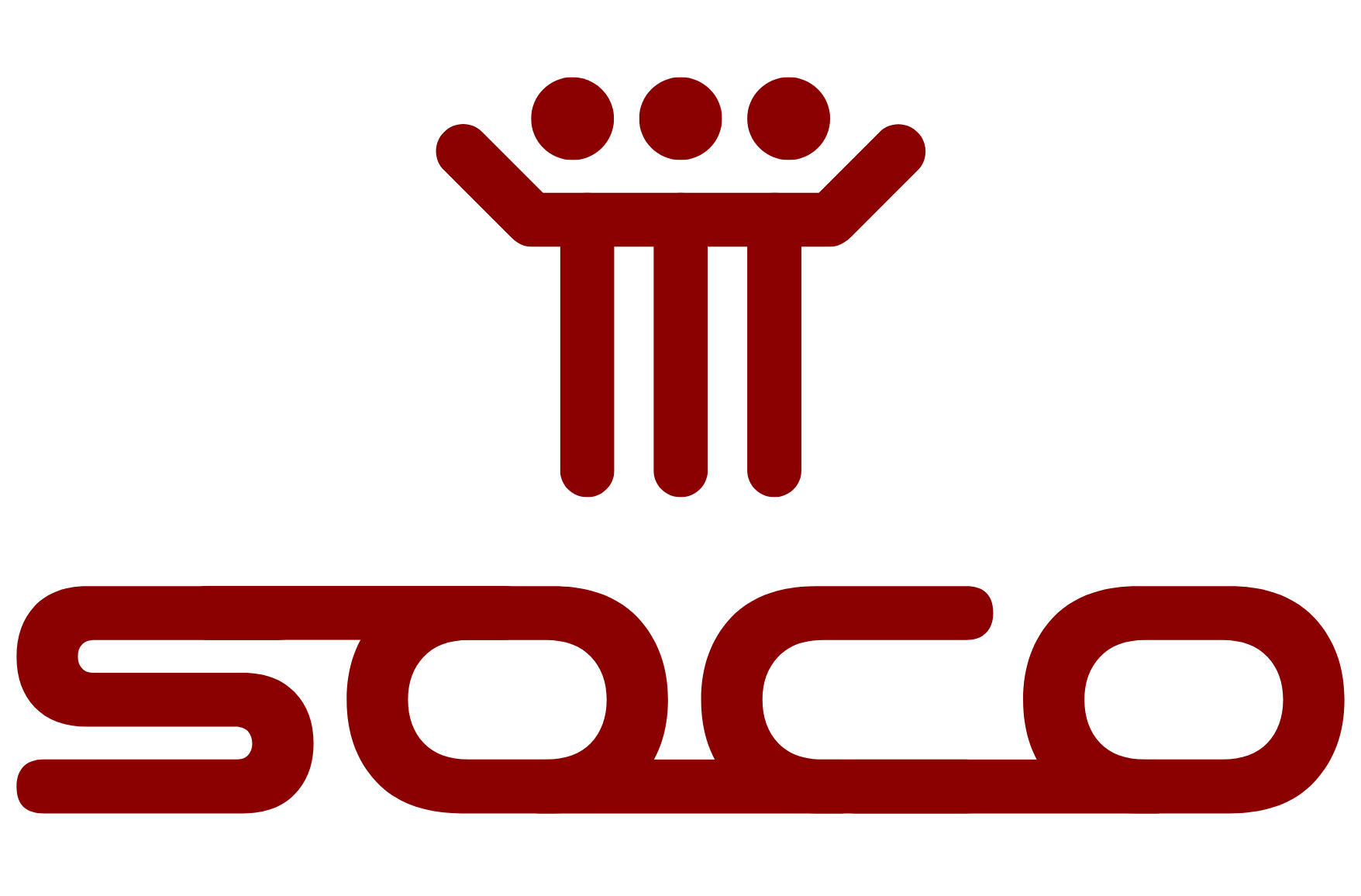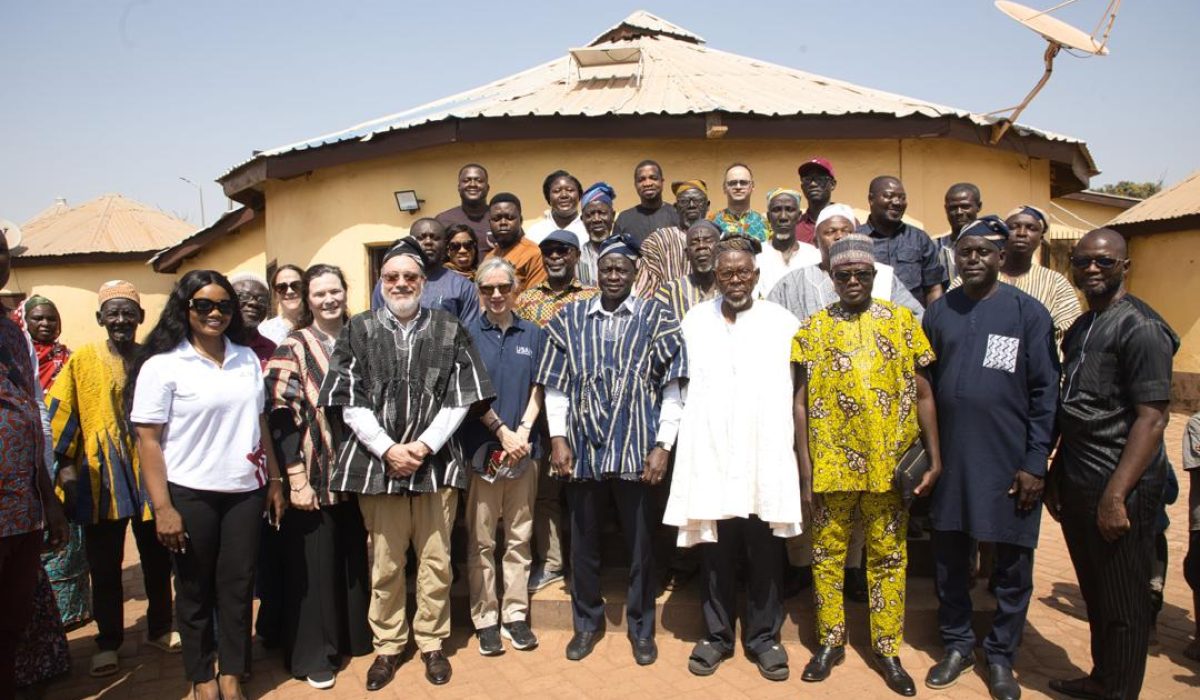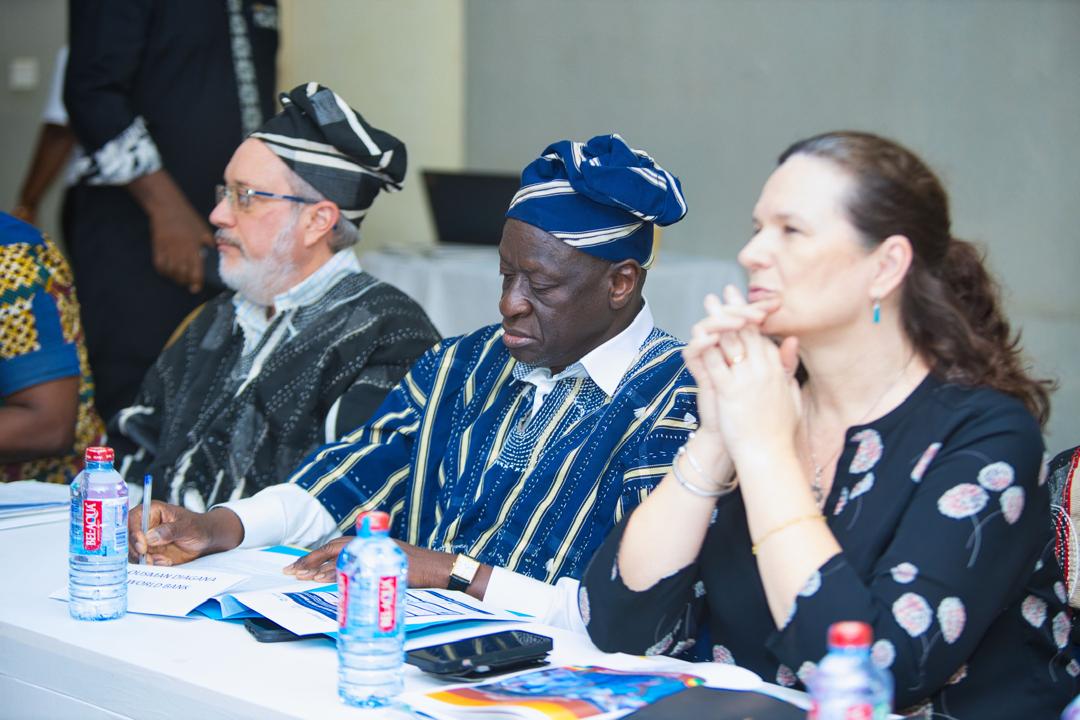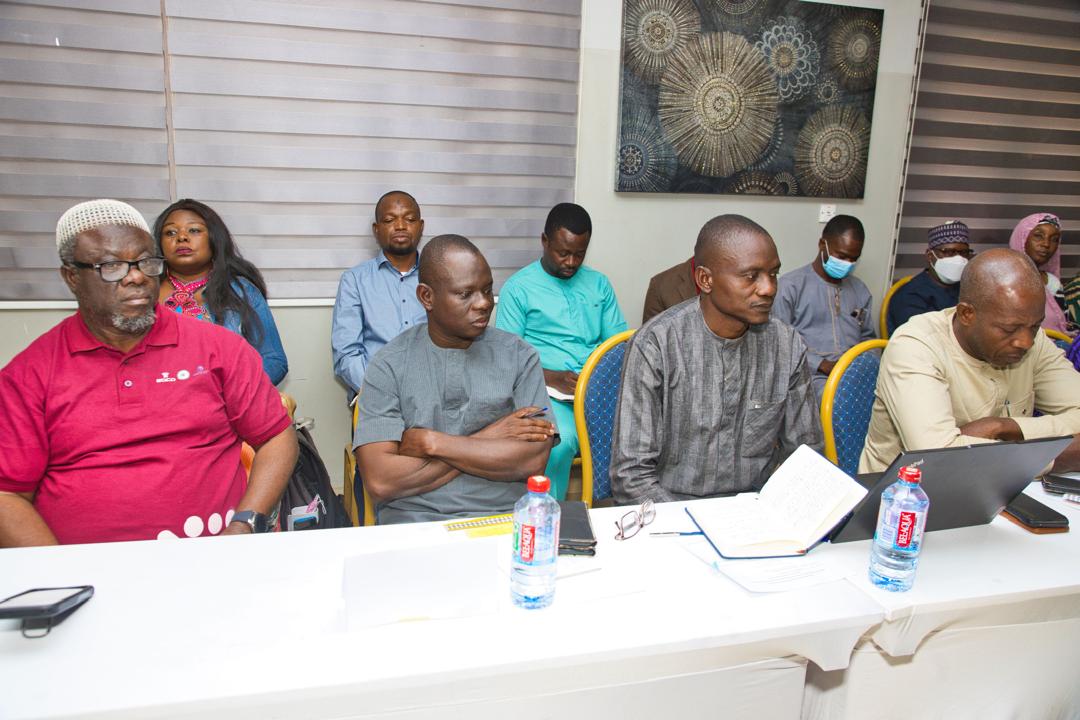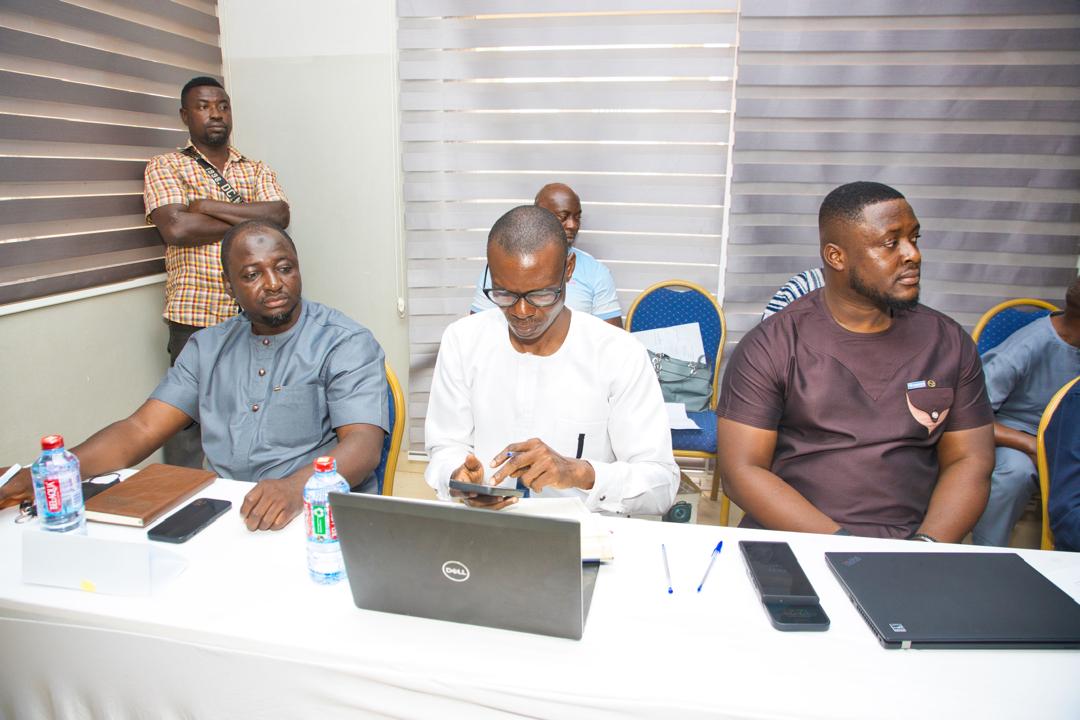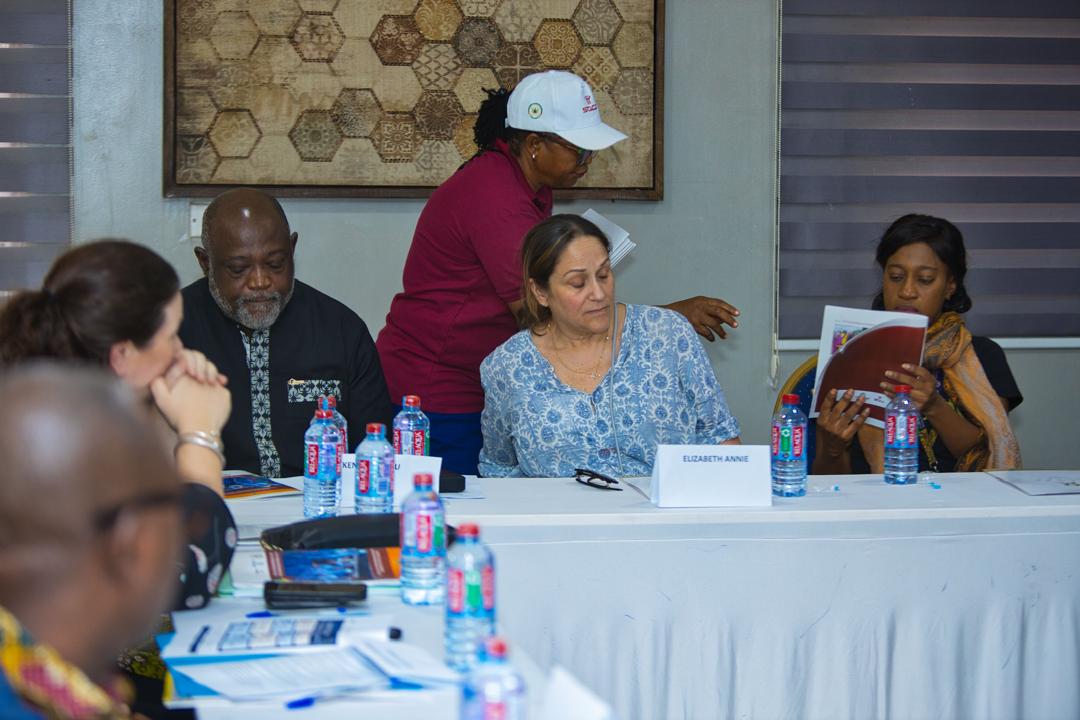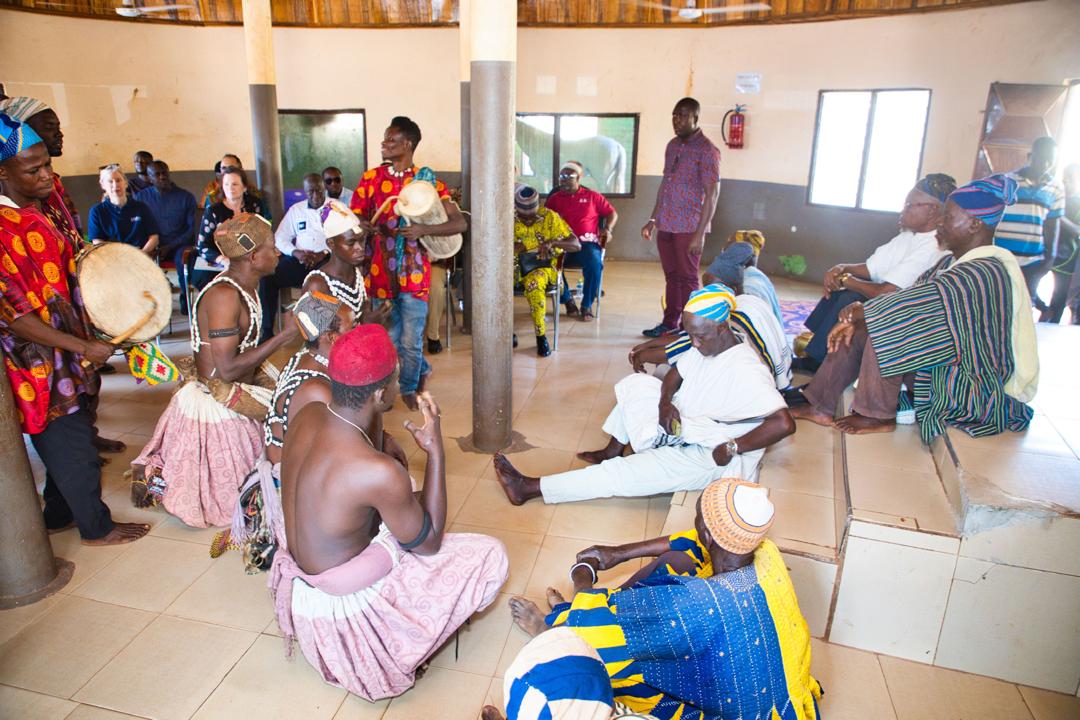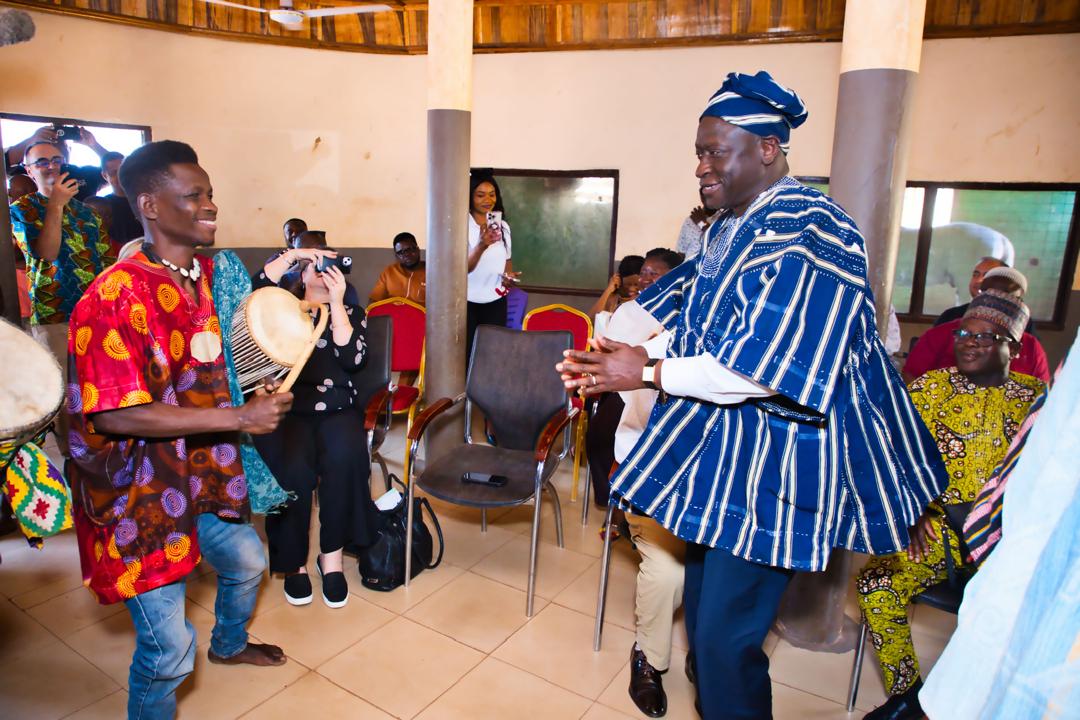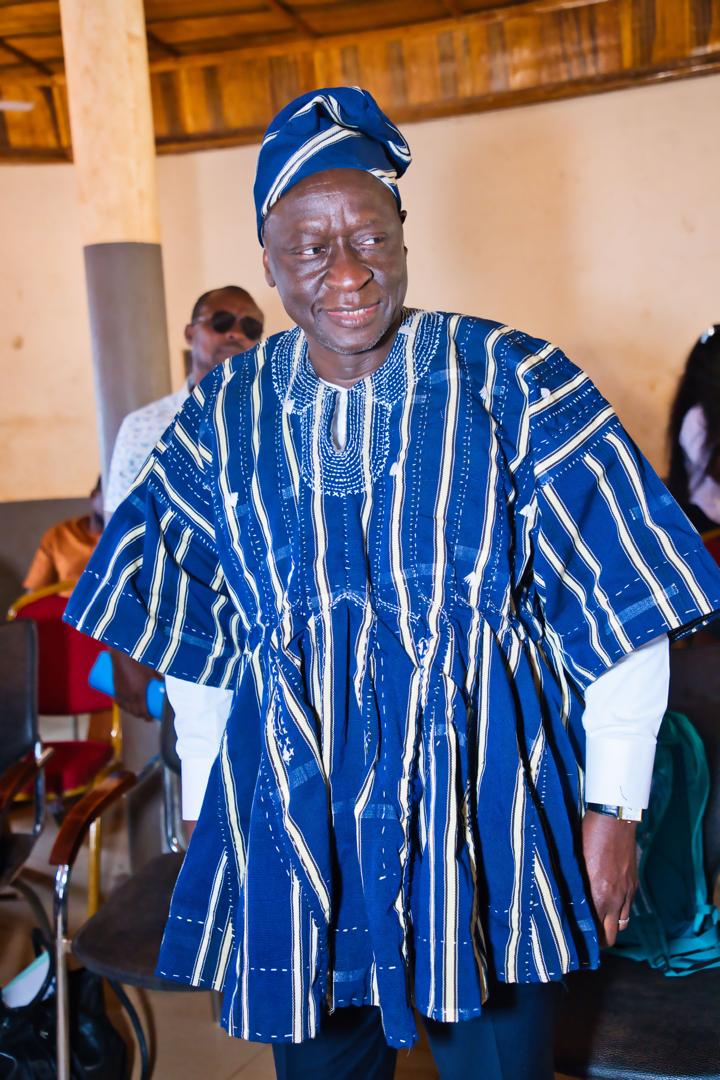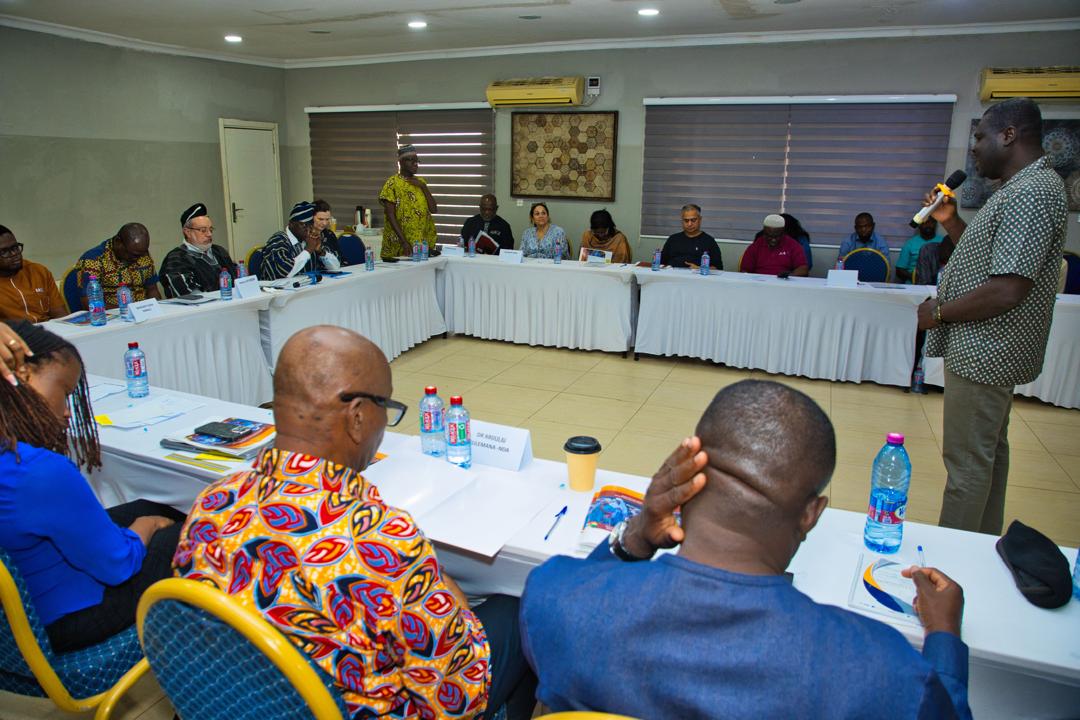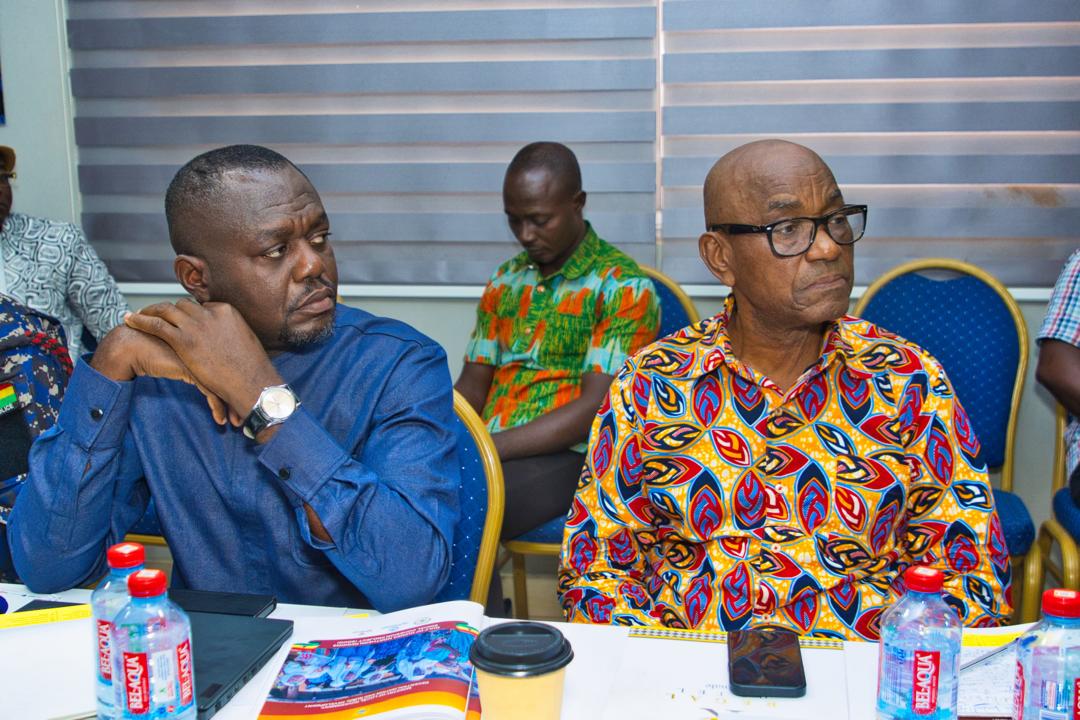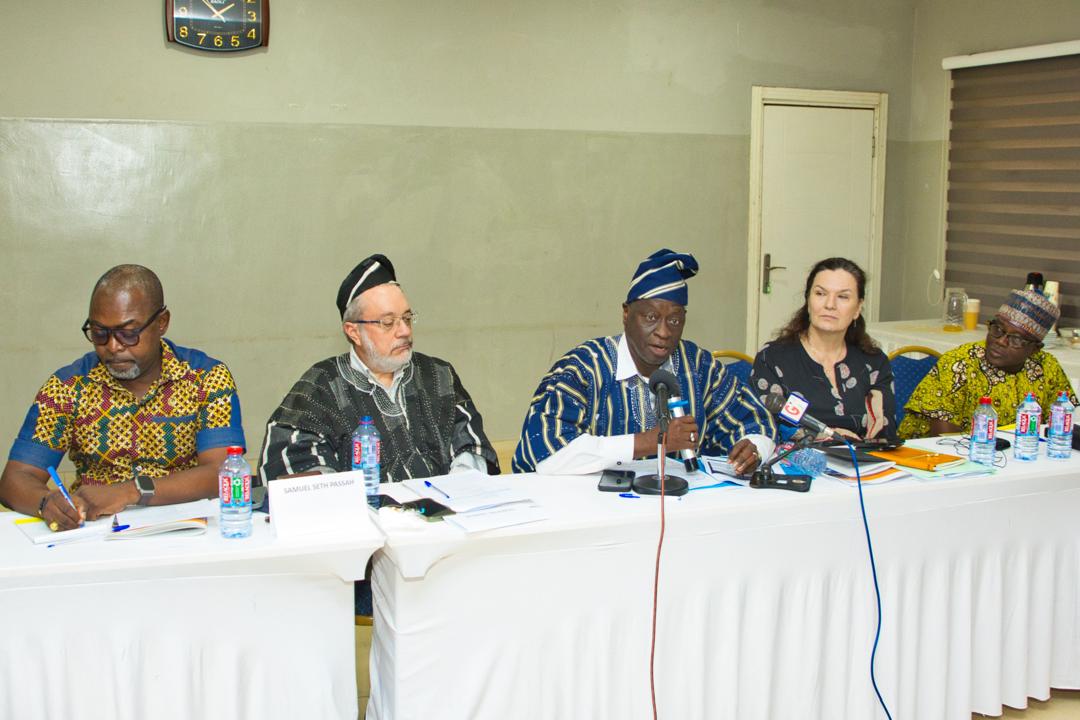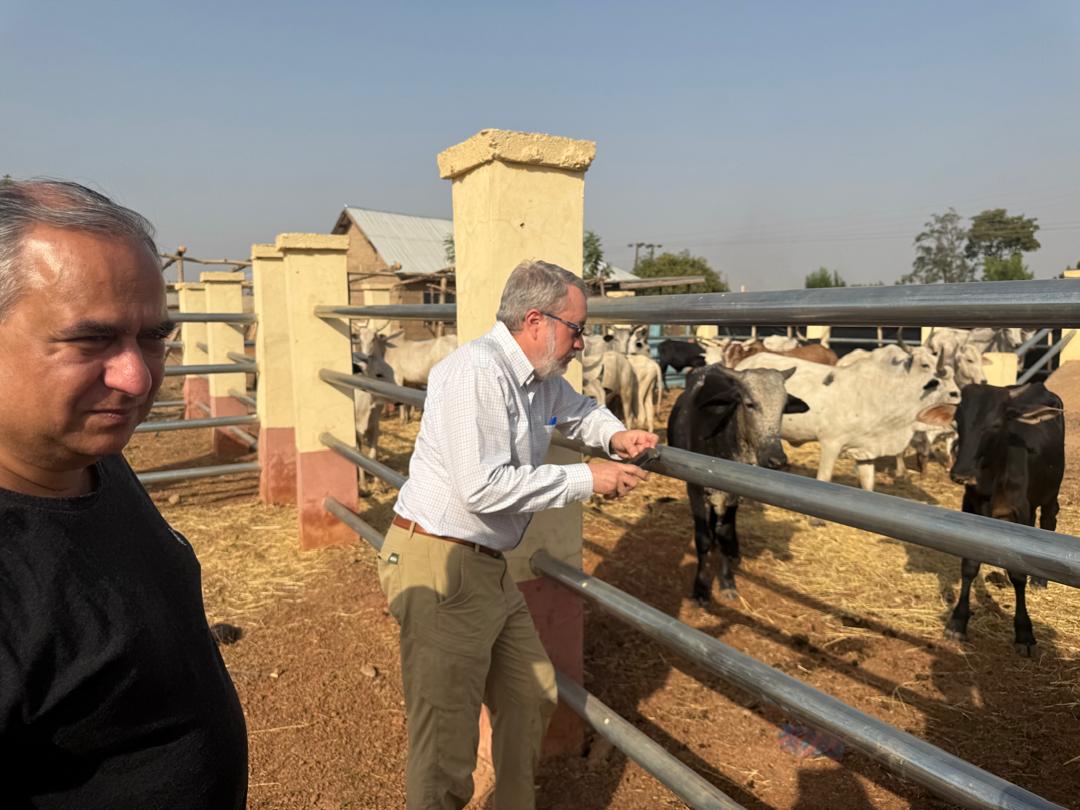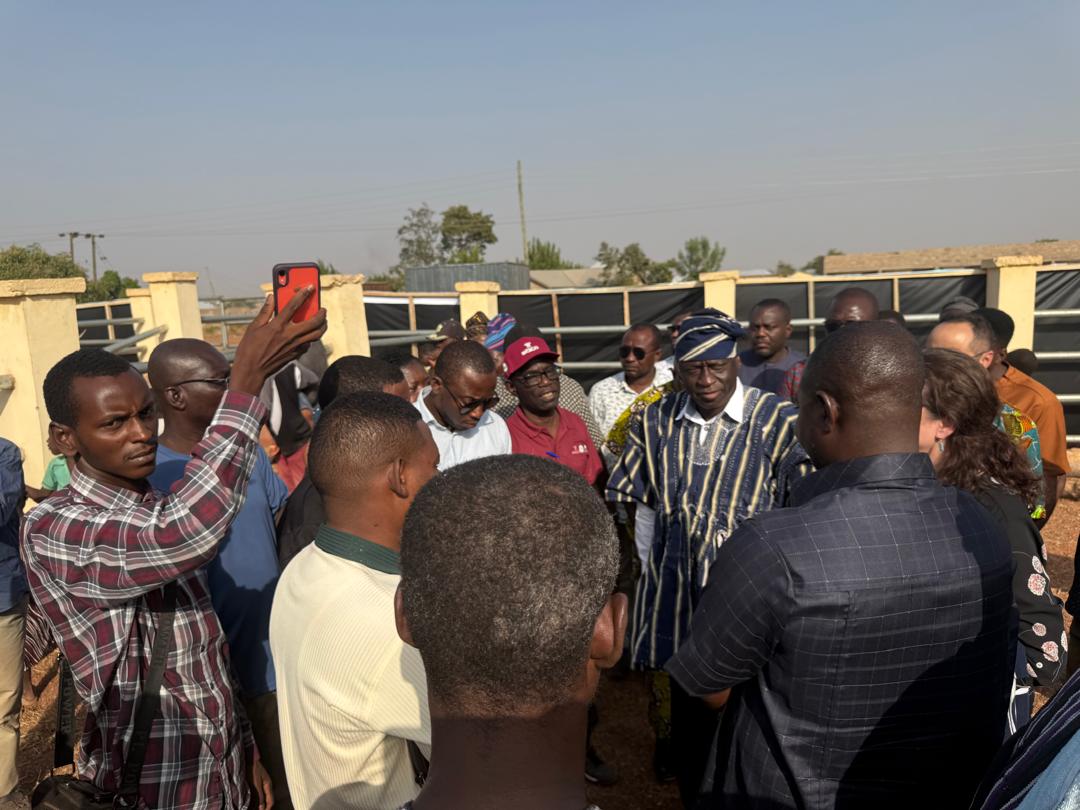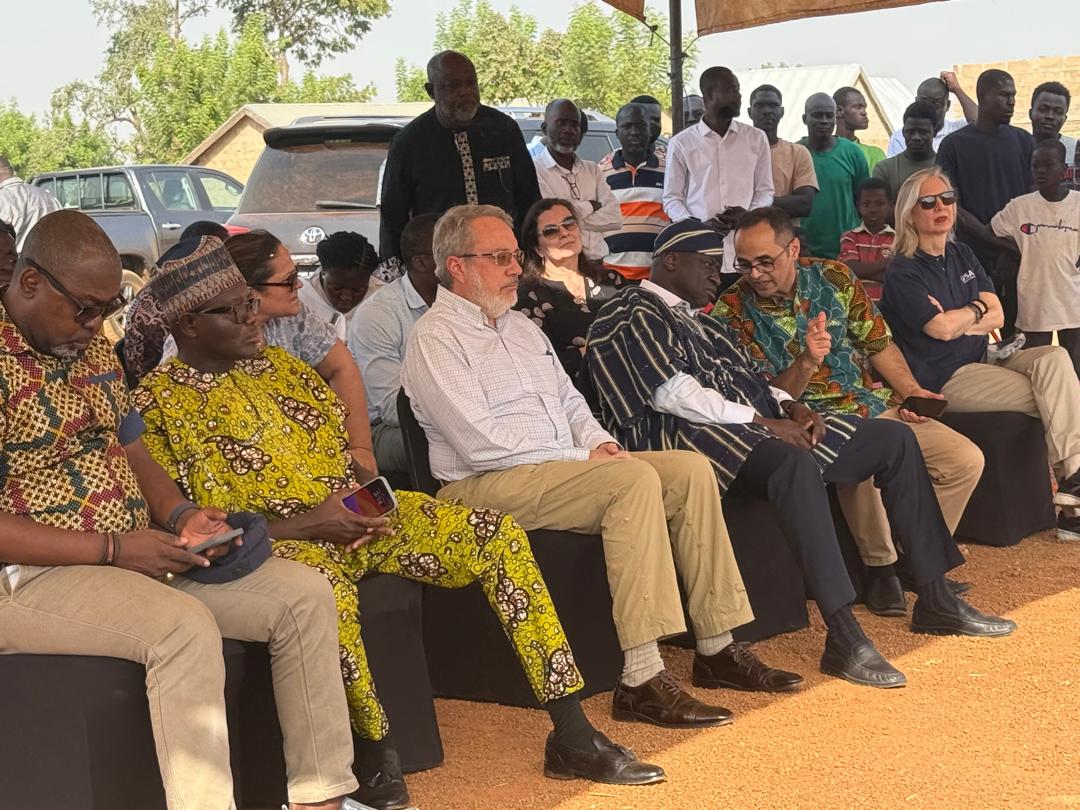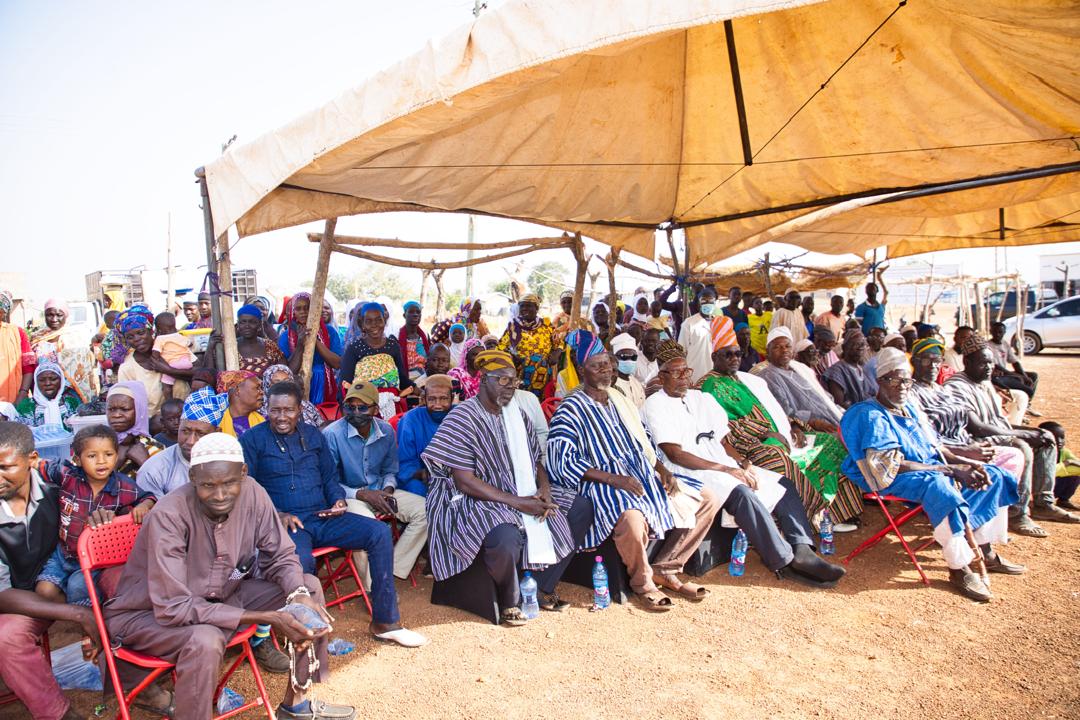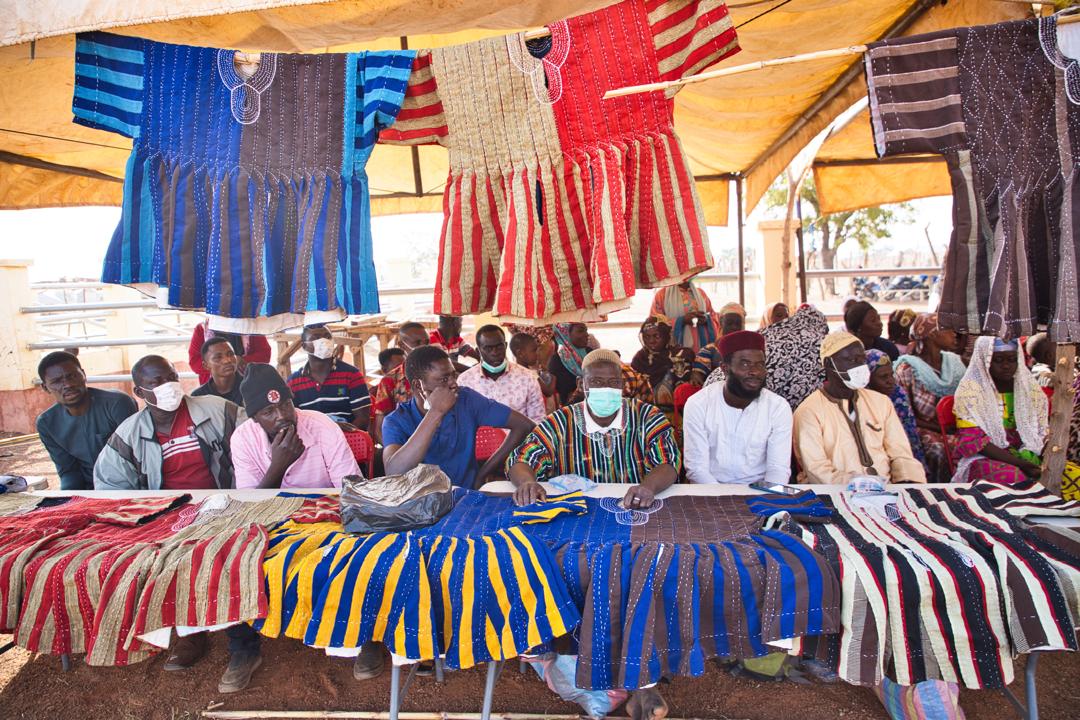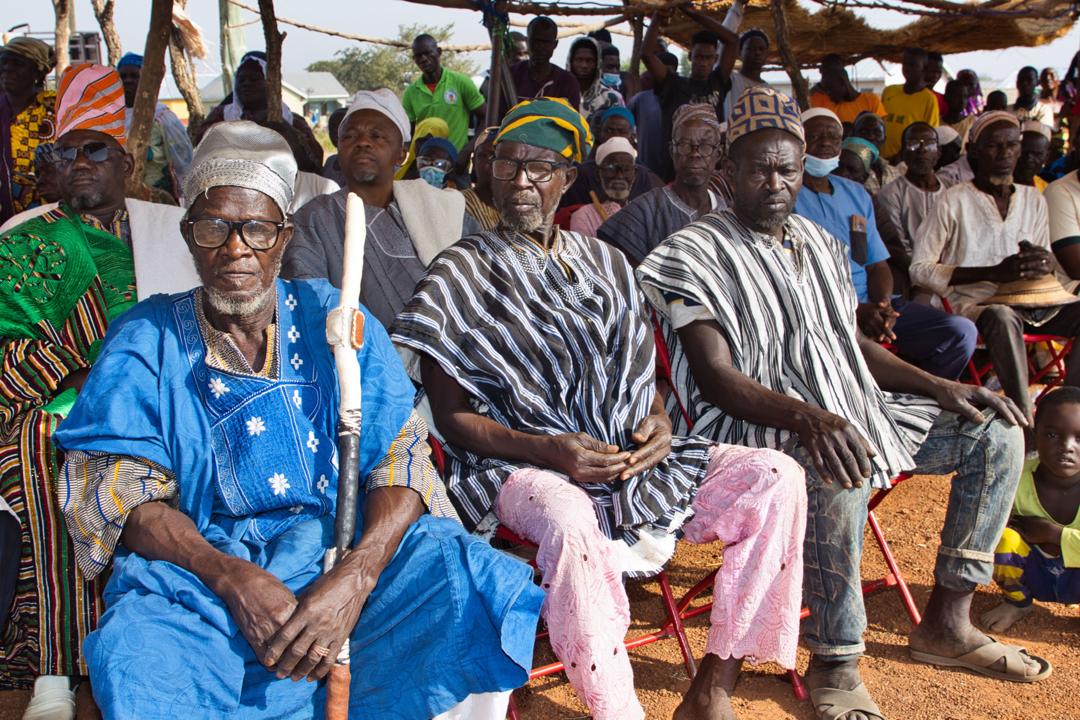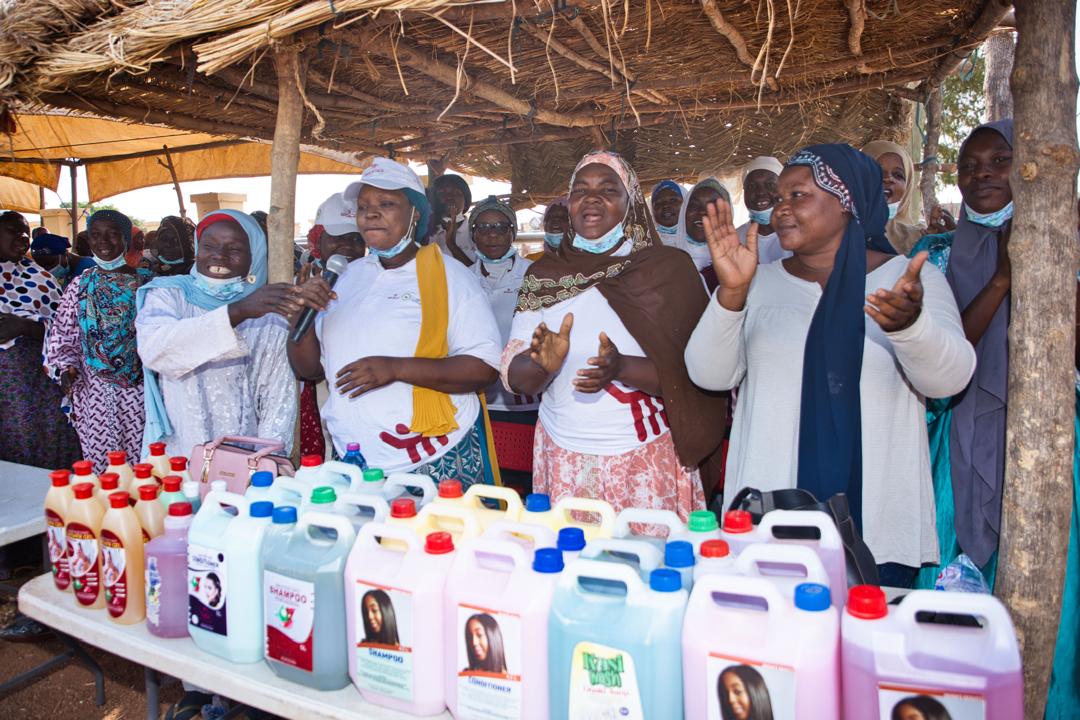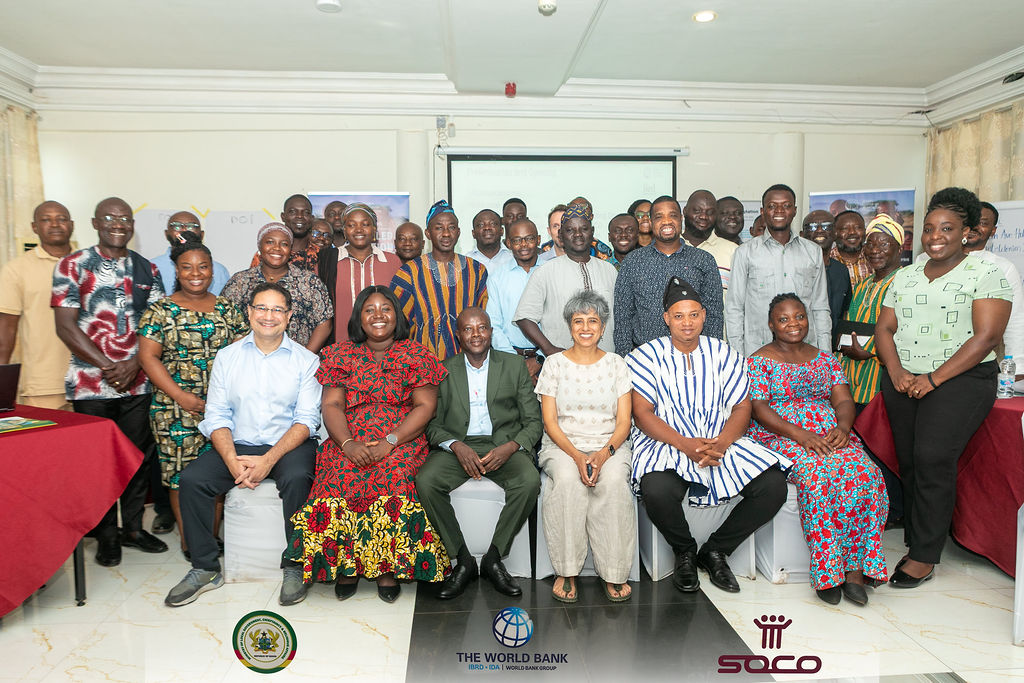As part of his visit to Ghana, Ousmane Diagana, Vice President of the World Bank for the Western and Central Africa region, engaged with the SOCO Project Ghana team and key stakeholders on 11th January 2025 at the Regal Hotel in Tamale. This meeting provided a platform to assess the project’s impact, address challenges, and discuss future strategies to enhance social cohesion, community resilience, and livelihood development in Ghana’s northern regions. The engagement brought together key stakeholders, including Robert Talierco O’Brien, Country Director -World Bank; Ashutosh Raina, Task Team Leader; Michelle Keane, Operations Manager – World Bank; Samuel Seth Passah, Director for Local Governance and Decentralization; Edem Norglo, representative of the Ministry of Finance; Bright Atiase, Chief Analyst from NDPC; Chief Directors from beneficiary RCCs, representatives from MMDAs, and officials from various Ministries and Agencies.
The discussions highlighted the SOCO Project’s significant achievements in infrastructure development, climate resilience, and livelihood support, as well as innovative solutions to overcome challenges and sustain long-term impact. The Vice President also emphasized the World Bank’s continued support in advancing the project’s objectives of transforming lives through social cohesion, fostering economic growth, and bridging inequalities.
As part of his field engagements, Mr Diagana visited the Nangbag-Yapala livestock market, where he observed its role in driving local economic activities and enhancing livelihoods. He also interacted with members of the Shishegu Soap Makers Group and the Daboya Smock Weavers Association, learning about how these livelihood activities have empowered women and youth through increased production, improved incomes, and strengthened community bonds.
Reflecting on his observations, Mr. Diagana remarked, “I am very satisfied. I have seen concrete activities that the project has funded. I am very impressed to see that there is a community at large that is a beneficiary of the project – that is the essence of the project. They consider it their project – so there is this sense of community ownership, which is critical.”
He further added, “I also understand that this is a need expressed by the community themselves. So, it means that we have been responsive to their needs. This is what this type of project is supposed to do. Of course, given the magnitude of the need, it will be very important to put to good use what exists already and ensure effective communication about the project’s activities to encourage partners to do more.”
The positive stories shared by beneficiaries have led to increased demands for the project to be extended to non-beneficiary communities. Mr. Diagana noted that these requests are a testament to the project’s success, assuring that the World Bank will continue its support to achieve the desired outcomes. He also expressed optimism that governments in the four beneficiary countries—Ghana, Togo, Benin, and Côte d’Ivoire—would take steps to sustain the project.
During the stakeholder engagement, Samuel Seth Passah, Director for Local Governance and Decentralization, speaking on behalf of the Chief Director, highlighted the remarkable progress made by the project. He noted that within two years, SOCO has impacted 48 districts, 217 clusters, and 1,700 communities, benefiting a population of 1.5 million. The project has disbursed $60 million, representing 40% of the total $150 million, within the first two years of implementation.
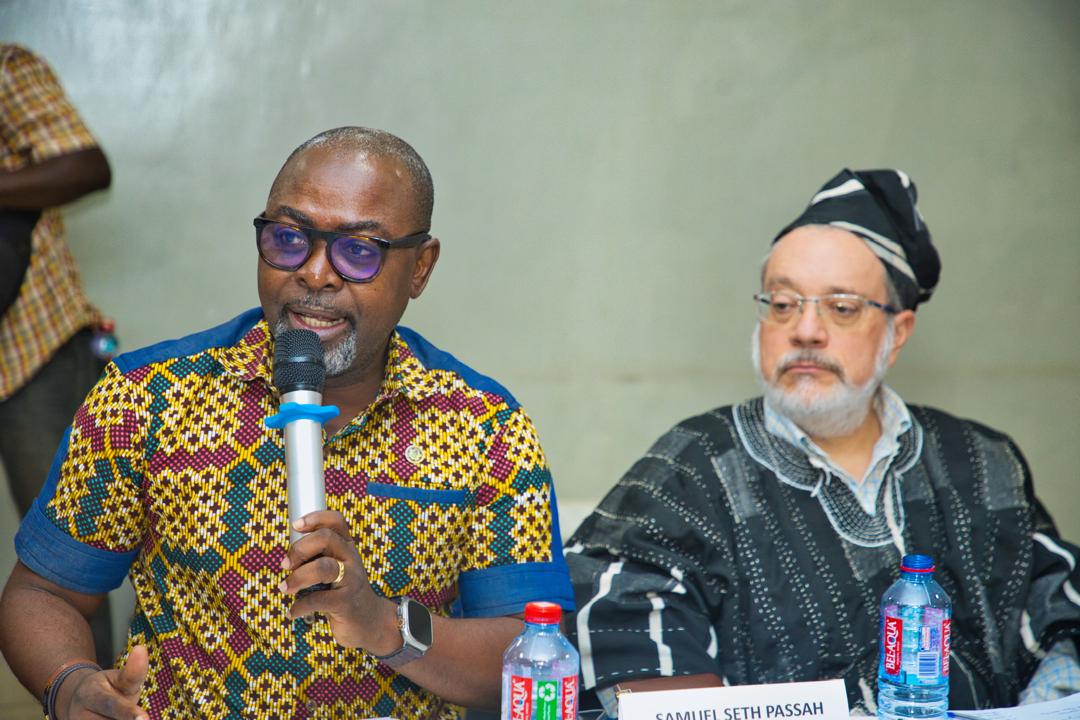
Elizabeth Ohenewah Agyei, the SOCO Project Coordinator, acknowledged the challenges of engaging minority groups but noted that sustained efforts have yielded positive results, further reinforcing the project’s sustainability. She emphasized the need for measurable outcomes to track the project’s long-term impact and guide future interventions.
The SOCO Project continues to transform lives by addressing critical community needs, fostering social cohesion, and empowering marginalized groups.
